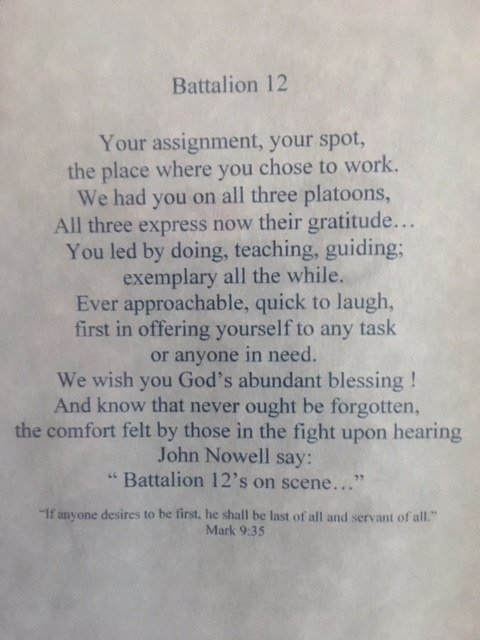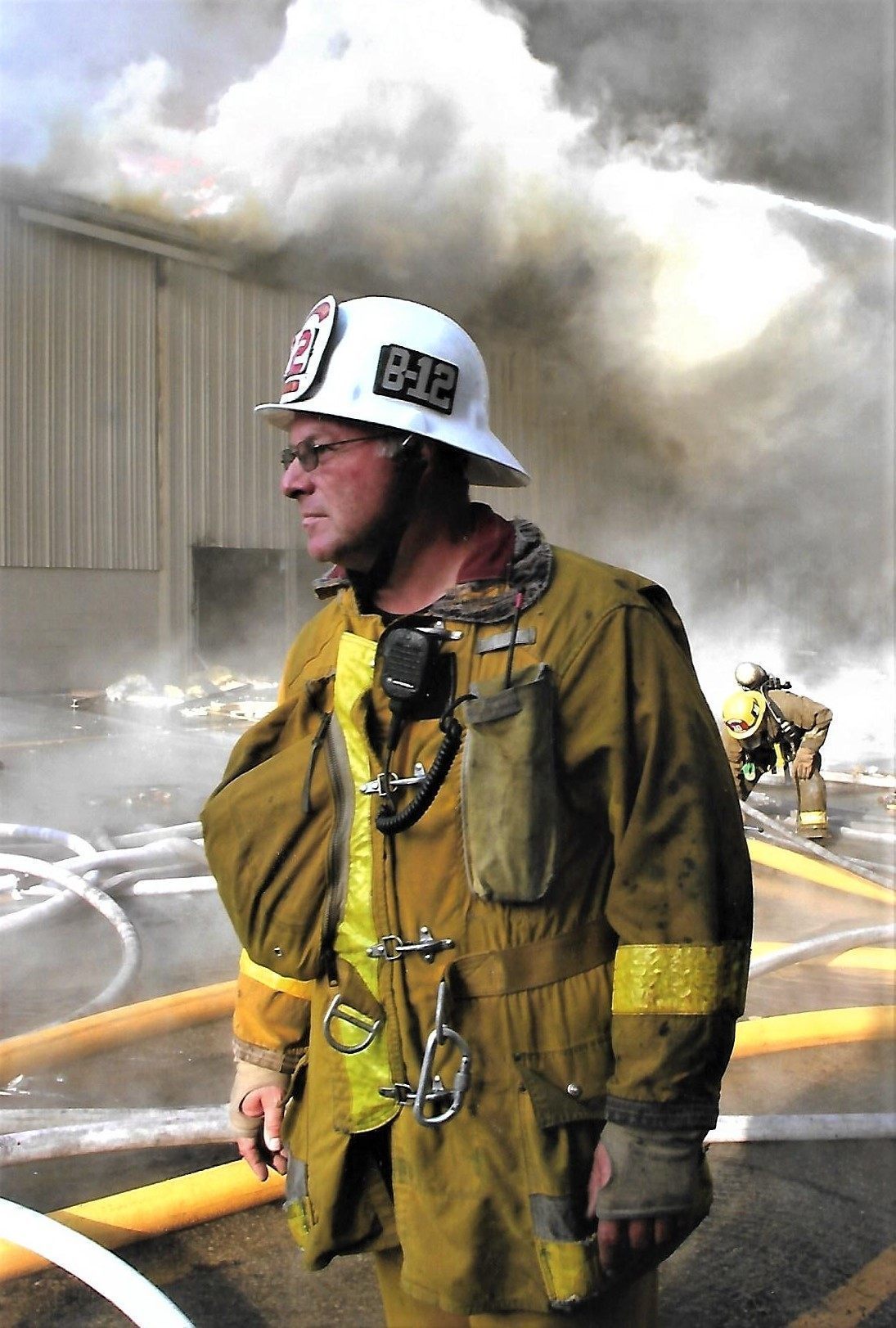So we're gonna talk about what I believe to be the qualities of a crisis leader and I would tell you that from experience on the Los Angeles City Fire Department, invariably some of our best crisis leaders were those people who obviously provided those levels of leadership and experience that when things were at their worst invariably they were rising to the occasion and had the ability to lead a group of individuals into some very bad situations and more often then not the better leaders, crisis leaders, would have a positive outcome as a result of that.
How did they get there and how did they develop that?
I would suggest to you that as you look around your department or your organization, invariably you are looking for people who will almost always have an incredible level of experience that got them to that point that they could provide that level of leadership when you came into the crisis mode.
I would also suggest that being a good crisis leader would be indicated by your ability to be a good everyday, non-crisis leader and invariably it's those people who have the experience and the knowledge and have made the time and the effort in not only training and preparing themselves but making a dedicated effort at training the people that work with and for them over the years to also be able to perform at a very high level when the crisis do occur because there are probably two different types of crisis leaders, those who are successful at mitigating incidence and those who in and of themselves occasionally have the ability to create or worsen a crisis. And those can almost always be spotted by their ability to lead on a day to day non-crisis mode.
So I would suggest to you that historically, especially on the Los Angeles City Fire Department those people who have the experience and quite often as I went through my career I would try and identify those people who literally intimidated me and ask myself why do they intimidate me and invariably it was because of their experience over the years, their having been to a multitude of incidents, their experiencing in managing people on a day to day basis, and their commitment and their efforts to not only make themselves better but also the people around them, their ability to recognize that being successful and managing a crisis did not fall on the one single person in charge of that particular crisis but was gonna fall upon everyone that was involved in that same incident and therefore they are always gonna make sure that the people that are working with and for them are trained to the highest ability they can be in order to be successful in every aspect of that particular crisis.
We also know that certainly in the fire service a great deal of our ability to be successful is our ability to recover.
It is probably more rare than common that we go to an incident with some preconceived notion of the outcome only to find that the fire and or mother nature had a different idea for us so we are constantly having to regroup, recover, and adjust our abilities and a good crisis leader has the ability to recognize that and has the ability to work with and convince their people that are working there that it is the right thing to do to go to an alternate method.
The other thing we notice in our better leaders of course is that their ability to lead in an non-crisis phase which is 99% of a career of course, doesn't change when the bell goes off and you go out the door and you're challenged with a massive incident that what I affectionately like to call their tone and tempo changes very little when they're going from the non-emergency day to day management to all of the sudden being faced with a very large what is perceived to be a crisis by certainly Mr. and Mrs. Smith who made the original 911 call so that as you go to an incident and you're working with your people they know and recognize the calming effect that tone and tempo by an experienced leader can provide in order to successful mitigate an incident and they appreciate that.
You can imagine as you're going out the door of a fire station and all of the sudden the messages start coming over the radio that you have a significant working incident that the adrenaline rush is incredible and you will have all levels of that adrenaline rush and all levels of reaction to that rush based on the experience and the level of training that everyone responding has.
So they're always looking for the leaders amongst us who are gonna be able to maintain that appropriate level of tone and tempo to bring some calmness, if that's even possible, in these situations.
Quite often we find that the more successful people in that process are the ones who recognize the capabilities of everyone that's working with and for them, they have made a dedicated effort to train them, they have the experience that they have been there and done that and every position that's gonna be operating at the incident, and therefore they are not getting on the radio and asking for arbitrary, unnecessary information on a regular basis because having been there and done that they know what everyone of those individuals is up against at the moment and they recognize that it takes time in order for them to be successful in everyone of their specific operations that you assign.
So the more successful crisis managers recognize that and rather than asking questions constantly throughout, which is by the way probably a prime indicator of their lack of experience, because of their experience there is a tone and a tempo on the radio that is calming and allows them the opportunity to be successful and more often then not you are providing them information from your outside clear air view on whether or not it is obvious they are being successful in their efforts.
And if you've been there and done that in every one of those positions you know what they're going through and you know that as they're crawling through a burning building or they're running a chainsaw or chopping with their ax on the roof, they don't have time and don't need to be bothered with asking mundane questions to the incident commander.
Our better crisis managers recognize that and provide them the opportunity to be successful and the information they need in order to determine whether or not they're being successful as the clock continues to tick.
Always reminded of folks like Sully Sullenberger and the infamous Miracle on the Hudson where they were faced with literally one minute and I believe about 39 seconds, to make some decisions in order to ditch their plane in the Hudson River and I can always recall him afterwards reminding us all that his success was based on his 40 years of training and experience and not a day went by that he didn't make an investment in his training.
Never conceiving that 40 years later he would make the ultimate withdrawal from that training account and in a minute and 39 seconds he did not rise to the occasion, he truly fell to the level of his training which fortunately was exceptional amount of training and ultimately ended up in the most successful ditching of an aircraft in the history of aviation.




